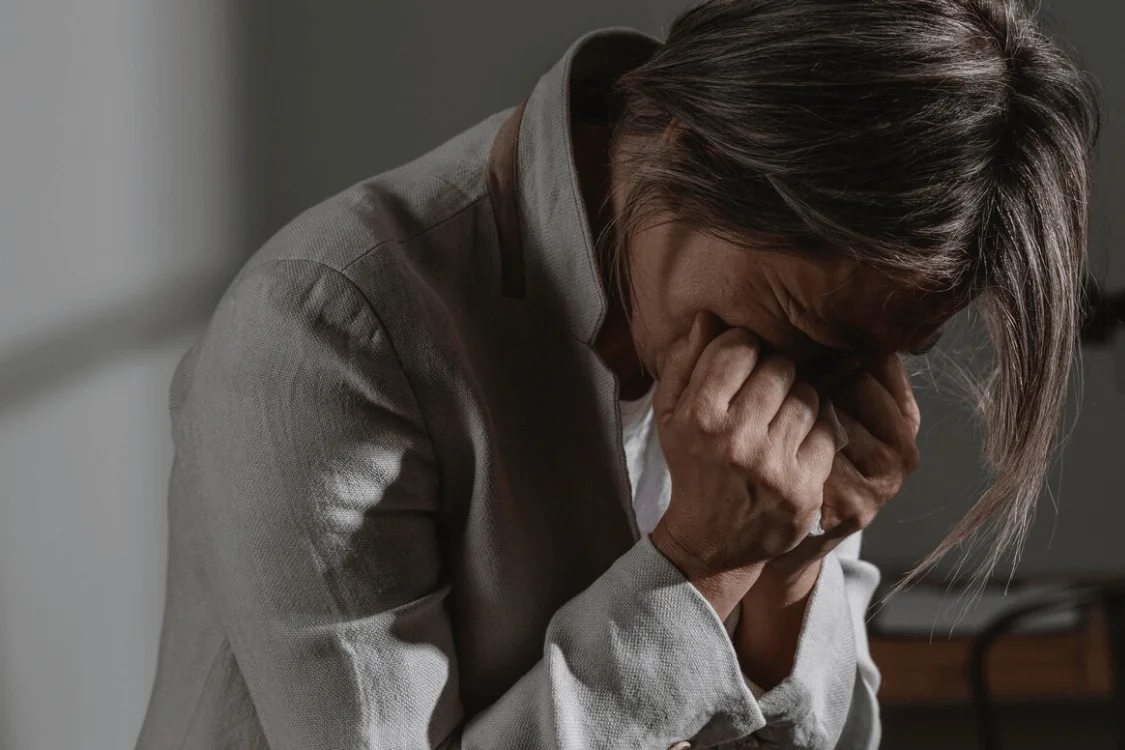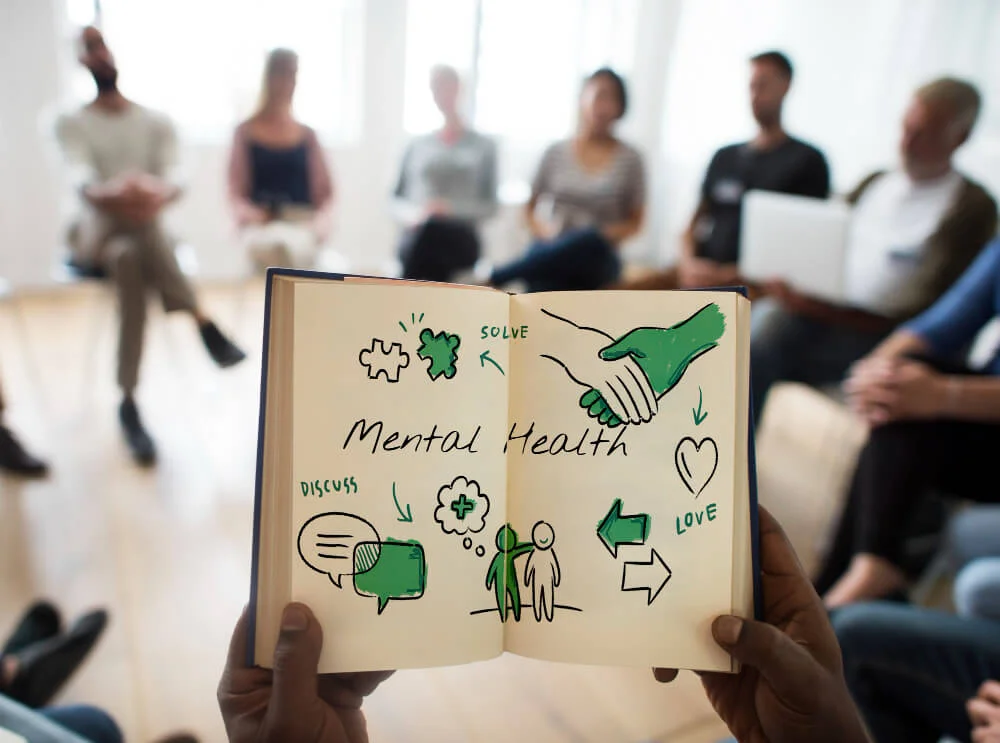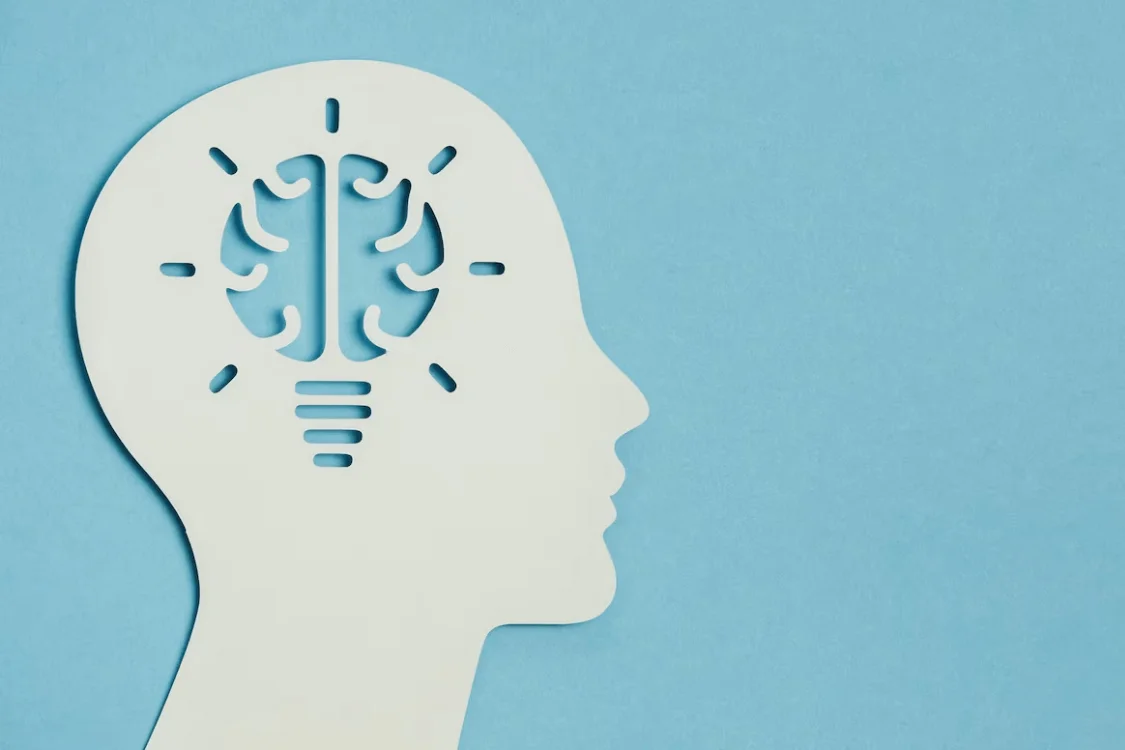
Mental Health Treatment
At Twilight Recovery Center, we recognize that mental wellbeing is as important as physical health. Our mental health treatment programs cater to a spectrum of mental health conditions, integrating traditional therapies with cutting-edge approaches to foster deep, lasting recovery. We are committed to supporting each client through their unique challenges with personalized care plans that aim for sustained wellness.

Mental Health Problems in the United States

Mental health disorders – ranging from common conditions like depression and anxiety to more severe forms such as bipolar disorder and schizophrenia – profoundly influence thoughts, feelings, and behaviors. Fortunately, these conditions often respond well to treatment, which may include a combination of medication, psychotherapy, holistic approaches, and innovative brain stimulation therapies.
Statistics from 2022 highlight the prevalence of mental health issues, with 23.1% of U.S. adults experiencing some form of mental health disorder. Among these, 6% faced serious conditions that significantly impaired daily functioning.
Additionally, nearly one-third of adults were dealing with co-occurring mental health and substance use disorders, underscoring the critical need for integrated treatment approaches like those provided at Twilight Recovery Center.
Here, we address the complexities of mental health with the utmost care, backed by expertise and a compassionate understanding of the recovery journey.
Different Types of Mental Health Treatment
From levels of initial detox to residential care and outpatient options, here’s a closer look at the main types of mental health treatments available:
Psychotherapy
Psychotherapy, or talk therapy, is the foundation of our mental health treatment programs. It involves therapeutic conversations and activities with a therapist to help clients identify, understand, and change troubling emotions, thoughts, and behaviors. We employ several evidence-based psychotherapeutic modalities tailored to individual needs, including:
- Cognitive Behavioral Therapy (CBT): This therapy focuses on identifying and changing negative thought patterns and behaviors. It is effective for a wide range of mental health disorders, including depression and anxiety.
- Dialectical Behavior Therapy (DBT): DBT is particularly effective for individuals who experience intense emotions. It teaches skills to manage these emotions and improve relationships.
- EMDR therapy: Especially beneficial for those with trauma, EMDR (Eye Movement Desensitization and Reprocessing) helps process and make sense of traumatic memories.
- Motivational Interviewing (MI): This technique encourages clients to find the motivation to change contradictory behaviors.


Support Groups
Support groups at our center provide an environment where clients can share experiences and offer mutual support. These groups help strengthen the community ties among clients, providing a network that fosters resilience and sustains recovery.
Medication-Assisted Treatment (MAT)
MAT is used to treat substance use disorders as part of a comprehensive approach that includes counseling and behavioral therapies. It can improve patient survival, increase retention in treatment, and reduce the risk of transmitting infectious diseases.


Dual Diagnosis Treatment
Many of our clients face co-occurring disorders, such as substance abuse coupled with mental health issues like depression or anxiety. Our dual-diagnosis treatment plans address both conditions simultaneously, ensuring a holistic approach to recovery.
Holistic and Specialized Therapies
In addition to traditional therapies, we offer holistic treatment and support catering to recovery’s physical, emotional, and spiritual aspects. These include:
- Holistic therapy: Techniques such as yoga, meditation, and acupuncture enhance mental and physical well-being.
- Gender-specific treatment: Tailored programs that address the particular needs of men and women separately, recognizing the unique challenges each gender faces in recovery.
- Treatment for co-occurring disorders: Specialized programs that manage the complexities when clients have multiple diagnoses.

What to Consider When Looking for a Mental Health Care Provider
Choosing the right mental health care provider is necessary for successful treatment and recovery. Here’s what to consider:

Credentials and Specialization
Our professionals are fully licensed to practice, ensuring they meet stringent education and training standards. Our team includes specialists in various mental health disorders, including anxiety, depression, PTSD, and more, offering targeted expertise for effective treatment.

Treatment Approaches
We employ a range of therapies, including Cognitive Behavioral Therapy (CBT), Dialectical Behavior Therapy (DBT), and more personalized approaches to suit different needs. Our holistic and integrative treatment philosophy may resonate with those seeking comprehensive care that considers all aspects of health.

Accessibility and Logistics
Conveniently located in Tijuana, we are easily accessible to clients from the USA and Canada. We accept various insurance plans and offer options for different financial situations.

Personal Comfort
Building a strong, trust-based relationship with your provider is key. We encourage initial consultations to ensure a comfortable match between therapist and client. Our staff is trained to communicate effectively and compassionately, ensuring you feel respected and understood.

Choosing the Right Fit
We offer initial consultations to help determine if our center and therapists are the right fit for your treatment needs. We are proud of our positive patient feedback and are recommended by many healthcare professionals.
Classes of Mental Health Conditions We Treat
Our comprehensive approach is designed to treat not only common mental health disorders but also complex and often misunderstood conditions.
Depression and Mood Disorders
These conditions can deeply impact one’s emotions and overall stability. Our treatments may include a combination of medication management, cognitive behavioral therapy, and holistic practices to address the biological and psychological aspects of mood disorders.
Anxiety Disorders
From generalized anxiety disorder to specific phobias, our therapeutic approaches are tailored to help clients manage anxiety symptoms effectively. Techniques such as exposure therapy, mindfulness, and relaxation training are often employed alongside traditional therapies.
Post-Traumatic Stress Disorder (PTSD) and Trauma
We offer specialized trauma-informed care that includes therapies like EMDR (Eye Movement Desensitization and Reprocessing) and trauma-focused cognitive behavioral therapy to help clients process and overcome the impacts of trauma.
Schizophrenia and Other Psychotic Disorders
Our center provides integrated treatment for schizophrenia, which may include antipsychotic medications, psycho-social support, and therapies designed to improve communication and coping mechanisms.
Borderline Personality Disorder (BPD)
Characterized by intense emotions and unstable relationships, BPD is treated at Twilight Recovery through dialectical behavior therapy (DBT), which has proven highly effective in helping individuals gain better emotional regulation and interpersonal skills.
Burnout and Stress-Related Disorders
Recognizing the growing impact of chronic stress on mental health, we address burnout through a holistic approach that includes stress management techniques, lifestyle modifications, and counseling.

Our treatment plans ensure that each client receives personalized care that addresses the symptoms and root causes of their conditions. We strive to empower our clients with the tools and knowledge necessary for long-term management and recovery from their mental health challenges.
How Treatment For Mental Disorders Works at Our Center
We approach the treatment of mental disorders with a comprehensive, multi-step process designed to address the unique needs of each individual. Here’s how treatment works at our center:

Initial Assessment
The journey to recovery begins with a thorough assessment by our team of mental health professionals. This initial evaluation is crucial to understanding each client’s specific challenges and needs. We review medical history, conduct physical exams, and utilize psychological evaluations to understand the individual’s mental health comprehensively.

Diagnosis
Based on the assessment findings, our team works to identify any mental health disorders or co-occurring issues. This stage may involve additional tests, such as lab work or imaging, to rule out other underlying conditions. Clients should discuss any particular triggers, the chronicity of their mental health issues, and any noticeable changes in their mental state to aid in accurate diagnosis.

Personalized Treatment Planning
Once a diagnosis is confirmed, we craft a personalized treatment plan tailored to the client’s needs. This plan may include medication management, individual therapy, group sessions, and holistic approaches such as mindfulness or yoga. Each treatment strategy is chosen to maximize the effectiveness of the recovery process and ensure the best possible outcomes for the client.

Implementation of Treatment
Treatment at Twilight Recovery involves a coordinated approach among our multidisciplinary team. Clients may engage in sessions with trained therapists to help them explore their feelings, thoughts, and behaviors and develop healthier patterns. Our center uses various therapy modalities, including CBT and DBT. Some instances may require mental health medications to manage symptoms effectively.

Ongoing Support and Adjustment
Recovery from mental health disorders is an ongoing process. Our team regularly assesses progress throughout treatment and makes necessary adjustments to the treatment plan. This dynamic approach ensures that care evolves with the client’s changing needs and supports their growth and recovery.

Aftercare and Long-Term Management
As clients progress through the treatment program, we begin planning for long-term management of their mental health. This may include ongoing therapy sessions, community-based support groups, or continued medication management. Our goal is to equip each individual with the tools and resources they need to manage their mental health effectively and maintain their wellbeing over the long term.
Learning More About Mental Health Care
Education plays a critical role in the recovery process. Understanding mental health conditions and the complexities of treatment can greatly enhance the effectiveness of recovery efforts, empowering clients and their families to take active roles in the journey toward well-being.
Here are some valuable resources for learning more about mental health care:
Twilight Recovery Center Blog
Our blog features a wealth of articles and posts addressing various aspects of mental health conditions, treatment options, and personal stories of recovery. It is an educational tool that provides up-to-date information and practical advice for individuals and families dealing with mental health challenges.


National Institute of Mental Health (NIMH)
The NIMH offers comprehensive resources on the science of mental health conditions, treatment options, and how to find help. Their website includes detailed information on clinical trials, data and statistics, and free publications that can be downloaded and shared.
Substance Abuse and Mental Health Services Administration (SAMHSA)
SAMHSA provides an extensive range of information on substance abuse and mental health issues. Their site offers access to helplines, treatment locators, and programs to improve mental health and support recovery.


National Alliance on Mental Illness (NAMI)
NAMI is a grassroots mental health organization dedicated to improving the lives of individuals and families affected by mental illness. They offer support groups, free educational programs, and advocacy opportunities to help spread awareness and support mental health nationwide.
Mental Health America (MHA)
MHA focuses on addressing the needs of those living with mental illness and promoting overall mental health as a critical part of wellness. Their resources include early identification and intervention tools for those at risk, and they offer materials specifically designed to help people cope and recover.


Our Education Programs
In addition to these external resources, Twilight Recovery Center provides on-site educational programs that cover a wide range of topics related to mental health and substance use disorders. These programs are tailored to the needs of our clients and are designed to complement their ongoing treatment plans.
Education helps reduce stigma and empowers individuals with the confidence to seek help and advocate for their health and recovery.
Get Help from a Mental Health Professional – Treatments are Available
Getting help from a trained professional is crucial. At Twilight Recovery, our team of experienced psychologists, psychiatrists, and therapists are available to provide expert care. From initial assessment through ongoing treatment, our staff supports clients every step of the way.
We encourage anyone struggling with mental health issues or substance abuse to reach out. Our holistic approach addresses the symptoms and underlying causes, and our serene location in Tijuana offers a peaceful backdrop for healing and growth.
If you or someone you know needs help, please get in touch with us to learn more about our programs and how we can assist in the journey to recovery.


